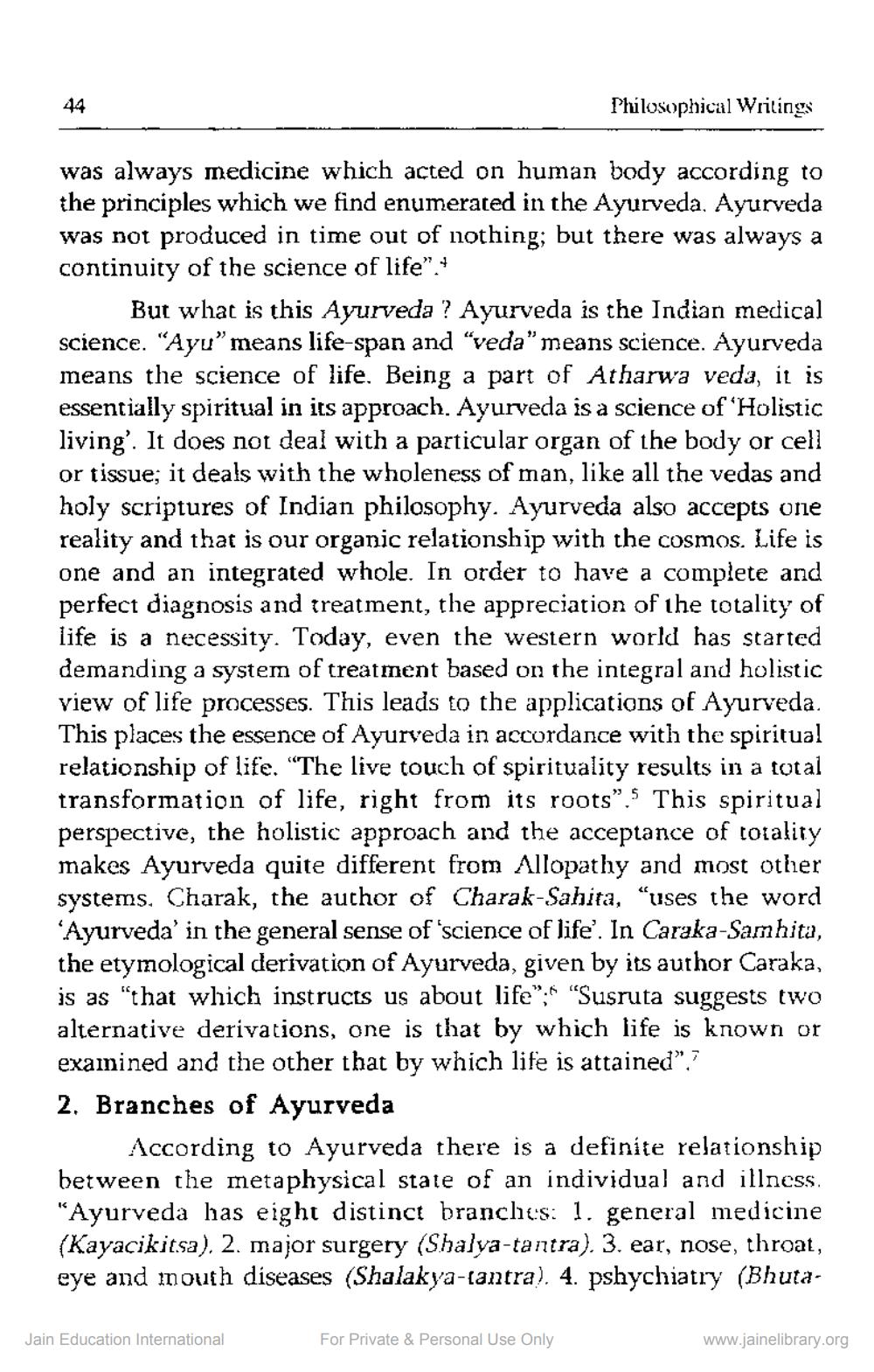Book Title: Philosophy and Medicine Indian Standpoint Author(s): Hemant Shah Publisher: Z_Philosophical_Writings_001802.pdf View full book textPage 4
________________ 44 was always medicine which acted on human body according to the principles which we find enumerated in the Ayurveda. Ayurveda was not produced in time out of nothing; but there was always a continuity of the science of life".+ Philosophical Writings But what is this Ayurveda? Ayurveda is the Indian medical science. "Ayu" means life-span and "veda" means science. Ayurveda means the science of life. Being a part of Atharwa veda, it is essentially spiritual in its approach. Ayurveda is a science of 'Holistic living'. It does not deal with a particular organ of the body or cell or tissue; it deals with the wholeness of man, like all the vedas and holy scriptures of Indian philosophy. Ayurveda also accepts one reality and that is our organic relationship with the cosmos. Life is one and an integrated whole. In order to have a complete and perfect diagnosis and treatment, the appreciation of the totality of life is a necessity. Today, even the western world has started demanding a system of treatment based on the integral and holistic view of life processes. This leads to the applications of Ayurveda. This places the essence of Ayurveda in accordance with the spiritual relationship of life. "The live touch of spirituality results in a total transformation of life, right from its roots"." This spiritual perspective, the holistic approach and the acceptance of totality makes Ayurveda quite different from Allopathy and most other systems. Charak, the author of Charak-Sahita, "uses the word 'Ayurveda' in the general sense of 'science of life'. In Caraka-Samhita, the etymological derivation of Ayurveda, given by its author Caraka, is as "that which instructs us about life"; "Susruta suggests two alternative derivations, one is that by which life is known or examined and the other that by which life is attained".? 2. Branches of Ayurveda According to Ayurveda there is a definite relationship between the metaphysical state of an individual and illness. "Ayurveda has eight distinct branches: 1. general medicine (Kayacikitsa), 2. major surgery (Shalya-tantra). 3. ear, nose, throat, eye and mouth diseases (Shalakya-tantra). 4. pshychiatry (Bhuta Jain Education International For Private & Personal Use Only www.jainelibrary.orgPage Navigation
1 2 3 4 5 6 7 8 9 10 11 12 13 14 15 16 17 18 19 20 21 22
